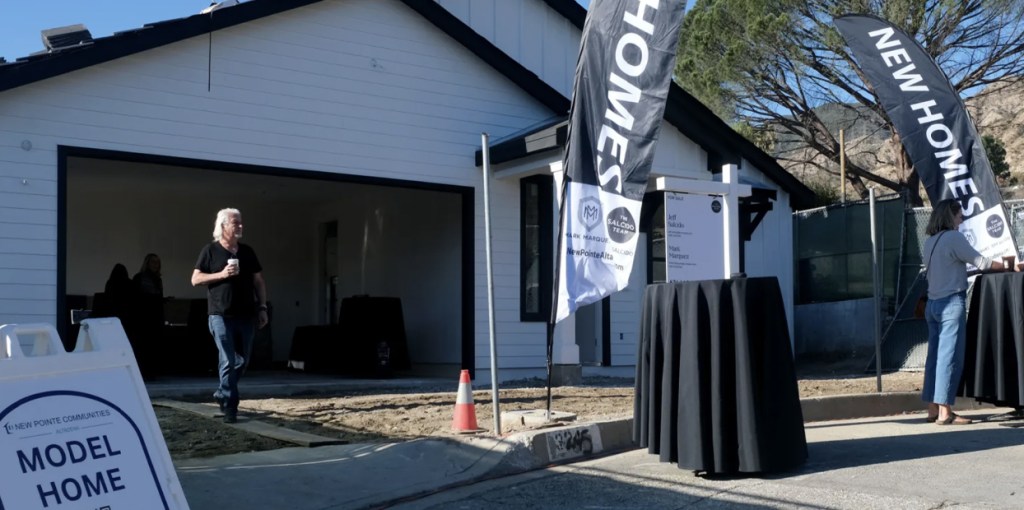M
ike Gilbane, managing director of Related Fund Management, opened the 31st‑year TRENDS Conference by applauding Florida State University’s College of Business and Real Estate Center for their student‑focused initiatives. “Seeing what you’re doing with students is truly inspiring,” he told the audience, highlighting the FSU Real Estate TRENDS Conference’s role in exposing students to industry practice. He praised the network the university has built and expressed confidence it will significantly impact the real estate sector.
The conference drew about 550 attendees, including industry leaders, state officials, and students from FSU, Florida A&M, and the University of Wisconsin‑Madison. Speakers discussed global and domestic investor trends, capital‑market dynamics, and Florida’s growing aerospace infrastructure. Michael Hartline, dean of the FSU College of Business, and Yvonne Baker, Brett C. Lindquist Executive Director of the FSU Real Estate Center, addressed the crowd. Ben Macfarland, FSU alumnus and CEO of SROA Capital, chaired a panel on global real‑estate investment and moderated a case competition that paired FSU’s No. 6 public‑school ranking with Wisconsin’s top‑ranked program. Students, including senior Adriana Gjergji, praised the opportunity to apply classroom knowledge to real‑world challenges and noted the valuable networking and industry insights gained.
Greenberg Traurig, a conference sponsor, posted on X that the event delivered “great insights and energy,” congratulating the College of Business and Real Estate Center on another successful gathering of students and industry experts.
A panel on Florida’s aerospace sector explored how real‑estate strategies support the state’s booming space industry. Chase Foster of FSU InSPIRE explained the university’s initiative to foster collaboration, develop a skilled workforce, and provide advanced manufacturing and wind‑tunnel testing facilities. Julia Black, vice president of advanced programs for Space Florida, outlined the state’s transportation infrastructure, including seaports and airports, and highlighted agreements with Amazon, Blue Origin, SpaceX, and Northrop Grumman. Moderator Eileen Vélez Vega of Kimley‑Horn emphasized Florida’s role as a hub for public and private space operations, noting that the state’s spaceports not only launch rockets but also drive economic growth.
In his keynote, Gilbane detailed Related Companies’ 28‑acre Hudson Yards project, a mixed‑use development on a former Manhattan rail yard. The 18‑million‑square‑foot complex features high‑end residential and commercial space, office towers, retail, public plazas, and the cultural venue The Shed. He traced the project’s origins to New York City’s failed 2012 Olympic bid, which had planned a stadium and subway extension. After the bid fell through, the city retained the subway plan, and Related seized the opportunity to develop Hudson Yards on the proposed stadium site. The first phase opened in 2019, and Gilbane highlighted the advantage of securing land at a fixed value through public‑private partnerships, emphasizing the importance of de‑risking and adding long‑term value.
Michael T. Fishman of Greenberg Traurig moderated Gilbane’s talk, noting that such large‑scale projects require more than real‑estate expertise—they demand political savvy, entitlement knowledge, and a long‑term perspective that outlasts economic cycles. He urged participants to think of these developments as “building a city in the city.”
Gilbane showcased Related Companies’ strengths: a $70 billion portfolio largely in affordable housing, a long‑term ownership mindset that encourages durable construction, and an owner‑operator model that delivers personalized service. He explained how in‑house development, construction, finance, and management processes give the firm control over the supply chain, reducing risk and enabling better capital planning. Gilbane concluded that students entering the industry will benefit from understanding the balance between controllable development risks and broader economic forces.















